2014.03.02
Japan Foreign Ministry making efforts to improve ODA
By Edo Heinrich-Sanchez
 This week the Economist.com has gathered leaders for the World Ocean Summit in San Francisco. Keynote speakers include U.S. Secretary of State John Kerry, HSH Prince Albert II of Monaco, former Secretary of Defense Leon Panetta among many other distinguished speakers. The key word is: Sustainability. The E in ESD also stands for English as it has been identified as a key element in international cooperation.
This week the Economist.com has gathered leaders for the World Ocean Summit in San Francisco. Keynote speakers include U.S. Secretary of State John Kerry, HSH Prince Albert II of Monaco, former Secretary of Defense Leon Panetta among many other distinguished speakers. The key word is: Sustainability. The E in ESD also stands for English as it has been identified as a key element in international cooperation.
Sustainability is not just about connecting the dots but learning from nature’s models how we can turn those dots into cogs in order to gear up towards connecting systems for: Systainability.
2014 is the last year of the UN Decade for Education on Sustainable Development. I challenge Okinawa Prefecture to register schools in every municipality especially the outer islands to join the UNESCO Schools network in order to create the momentum for the next stage towards a systainable future.
Thursday we were at the Okinawa International Center (OIC) managed by JICA (Japan International Cooperation Agency). Local NGO leaders have been invited to make comment and present questions to the Japan Ministry of Foreign Affairs (JMOFA) in its efforts to better collaborate with NGO’s for its Official Development Assistance (ODA). The questions and answers are at the end of this piece.
JMOFA started this process in 2002. “The Ministry of Foreign Affairs has decided to sequentially implement the following 15 specific measures for ODA reform in five areas: (1) auditing, (2) evaluation, (3) partnership with Non-Governmental Organizations (NGOs), (4) exploring, fostering and utilizing human resources and (5) information disclosure and public relations, under the principle of “implementing whatever possible.”
These measures consist of 3 pillars: “public participation,” “transparency” as well as “efficiency,” based on the final report of the Second Consultative Committee on ODA Reform and the interim report of the Committee on the Reform of the Ministry of Foreign Affairs. Furthermore, the Ministry is prepared to take, where appropriate and possible, additional action.” http://www.mofa.go.jp/policy/oda/reform/measure0207.html
JMOFA with its JICA and ODA has focused on “human capacity building” and “nation building” programs similar to what the Peace Corps and USAID have been doing. In Japan’s case, building a sustainable future has been at the forefront of these programs. These efforts have culminated with the 2002 World Summit on Sustainable Development (WSSD) where Japan proposed the United Nations Decade of Education for Sustainable Development (UNDESD). The Initiative was launched in January 2005 with Japan assisting the United Nations Educational, Scientific and Cultural Organization (UNESCO) which is the lead agency promoting UNDESD. Japan also set up the UNESCO/Japan Funds-in-Trust to assist UNESCO’s efforts including community and school based activities along with the development of teaching materials related to ESD.
The MEXT (Ministry of Education, Sports, Science and Technology) the UNESCO Schools Network Japan and the Japanese National Commission for UNESCO have placed the UNESCO Associated Schools as a base for ESD promotion.
This year is the last year of the UN Decade for ESD. Okinawa Prefecture has only two schools registered in the UNESCO Schools Network. Chatan JHS and Nakagawa Elementary School in Kin Town.
Perhaps we can use ESD as the focal point to connect the gears at MOFA with the gears at MEXT. The MOFA led Japan English Teaching (JET) Program can be adjusted to allow more English speakers with elementary teaching credentials to LEAD English classes in the elementary school. Okinawa has a large pool of expert English teachers who are limited in their roles as Assistant Language Teachers (ALT). Assisting and not leading.
The elementary schools will have English as a subject requiring testing. The pressure is on the students, yet we need to put in place assessments of the actual skills and proficiency of the existing licensed Japanese Teachers of English (JTE) while allowing for new teacher trainees to become confident “communicators in English” before we they are allowed to teach the language.
This is where the MEXT and MOFA partnership can support the UNESCO ESD next stage. New teachers of English could be allowed to intern in JICA overseas programs while the JET program can pick up the slack by charging up the elementary school English. JET program and those who have graduated but are still in Japan have the credentials to “prime the pump” in English education in Japan as we ready for the Olympics. The UNESCO Schools network has available free resources that can be applied to school exchange programs. ALT’s can be designated as the point of contact under supervision of the JTE at their school. Budgets need to be allocated in order to keep and use the expertise we already have on island.
English classes need to be English led. At the 6th Forum on English Education in Okinawa, the forum was Japanese led as are most meetings. We could benefit from the local native English expertise by moving towards a bi-lingual platform for these proceedings.
Here are today’s questions to MOFA with the answers:
Question 1
Regarding the UNESCO world meeting about ESD to be held in Japan in 2014, we want to hear your opinions. How do you plan to let NGOs participate? What is the role of the NGO?
Answer 1
In the world meeting to be held by the co-sponsorship of Japanese Government and the UNESCO, we will review “ten years (2005-2014 years) of our country and United Nations ESD”. We expect that it will provide the important opportunity to tell the world about activities carried out in various places in Japan.
Question 2
As Japanese Government, we want to know how you plan to cooperate with NGOs in future?
Answer 2
We recognize that, ESD is the means that is important to realization of the sustainable development for Ministry of Foreign Affairs. From it, we will promote ESD through ODA business including the NGO cooperation globally in future.
In addition, Ministry of the Environment carries out “+ (plus) ESD project”. This is activity to connect NGOs and the company performing ESD activity. The whole government has an intention to propel ESD domestically in cooperation with an NGO.
About the side event of the meeting, Ministry of Foreign Affairs together with UNESCO is going to perform the international open call for participants to the side event in May. The number participants is limited, but we suggest NGO participation.
In addition, in this spring, Ministry of Education, Culture, Sports, Science and Technology is going to accept applications from domestic public participants.
Okinawa can adjust its English education parameters to take full advantage of our unique history and position. We expect the U.S. military bases to be here for quite some time along with a wealth of experienced JET veterans who are licensed to teach. Our kids need to learn English in order to be taught in English with a focus on contents. Education for Sustainable Development is the key to our future.
Next week: Eiken Foundation Reform and the AMICUS Okinawa International School Experiment.
Questions and comments to: edo@okinawaocean.org

 2024.06.08
2024.06.08 2024.05.25
2024.05.25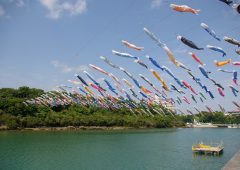 2024.04.26
2024.04.26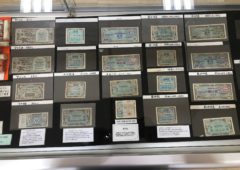 2024.04.22
2024.04.22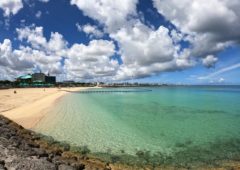 2024.04.10
2024.04.10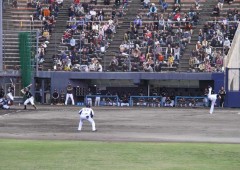 2024.01.31
2024.01.31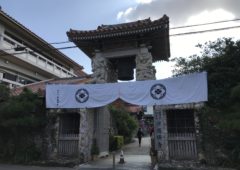 2024.01.02
2024.01.02 2023.12.27
2023.12.27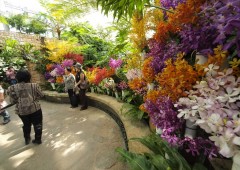 2023.11.16
2023.11.16






